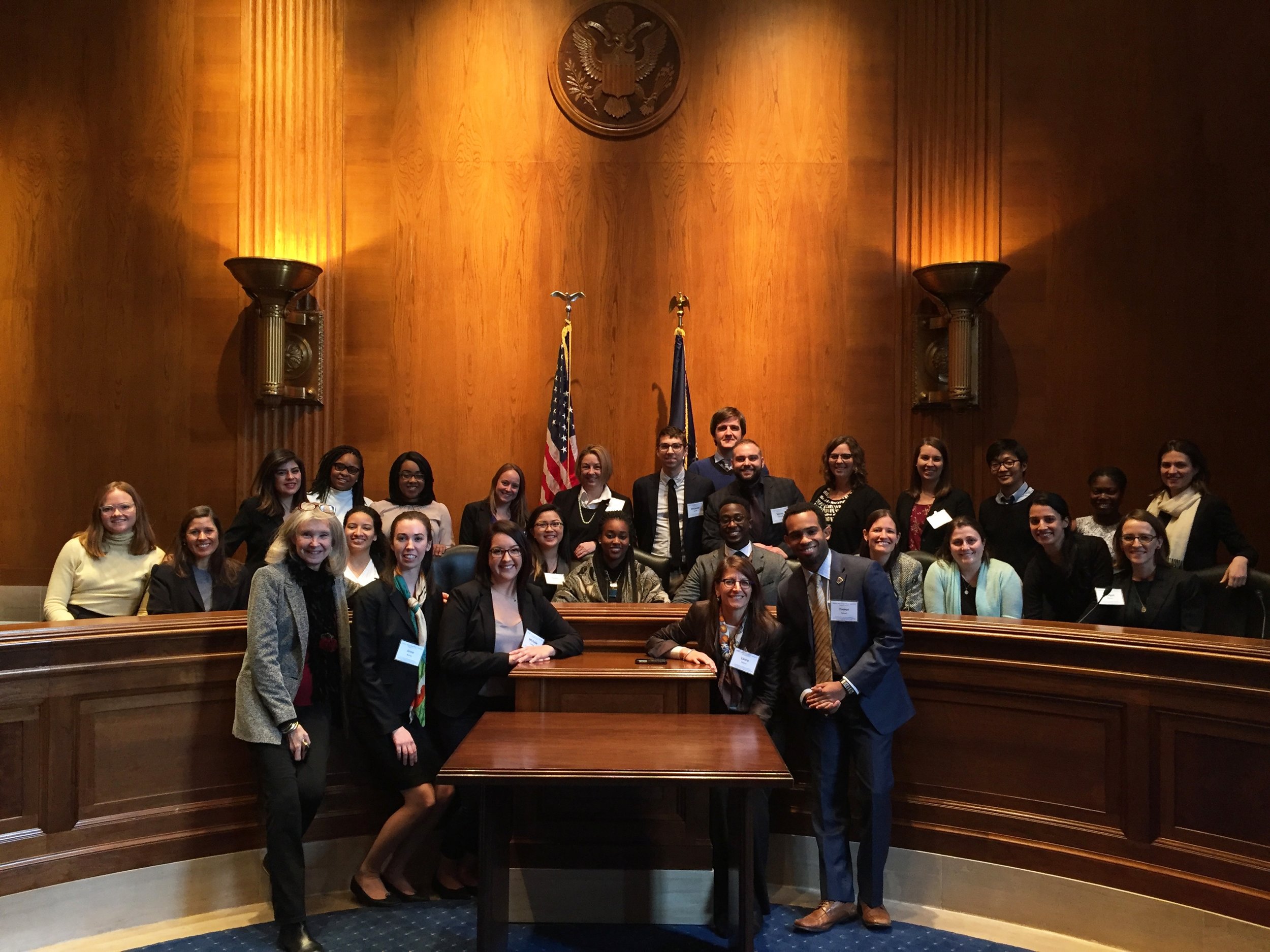Federal Policy Institute, Washington D.C.
Elaine Smolen, Cohort 2 Scholar

Teacher's College, Columbia University class in the hearing room of the Senate HELP Committee. Elaine Smolen - back row, fourth from the right. Dr. Kagan - front row, far left.
The travel funds provided by NLCSD allowed me to delve deeply into the world of education policy as part of a unique class offered by Teachers College, Columbia University. The Federal Policy Institute included several on-campus class meetings with challenging research assignments and lectures led by Dr. Sharon Lynn Kagan, a highly regarded expert on education policy, and culminated in a fantastic weeklong experience in Washington, DC. With support from NLCSD, I traveled to and stayed in the nation’s capital, the heart of federal education policymaking. Through panels, lectures, and informal discussions, we heard diverse viewpoints on such topics as research and education policy, the role of think tanks, working on Capitol Hill, and education reform. Speakers included Dr. Phillip Lee, a law professor who recounted the role of the courts in education through the lens of critical race theory, and Dr. Thomas Brock, who discussed the work of the National Center for Education Research.
We traveled to Capitol Hill and met with policy advisors from the Senate Committee on Health, Education, Labor, and Pensions (HELP) in the room where Betsy DeVos’s confirmation hearing would be held a week later. There, we learned about the political climate surrounding education, from last year’s passage of the Every Student Succeeds Act (ESSA) to the current focus on reauthorizing the Higher Education Act (HEA). Although some speakers predicted that federal oversight/regulation of higher-education institutions would increase with the reauthorization, others focused on the current push to devolve power to states and localities. (This uncertainty surrounding what to expect with the new administration and Secretary of Education was echoed by many speakers throughout the week.) I asked several policy staffers about plans to reauthorize the Individuals with Disabilities Education Act (IDEA), but special education appears not to be a priority on the current legislative agenda. Some said IDEA would be addressed after the reauthorization of the HEA was passed.
I had the privilege of discussing special-education policy further during when I interviewed two key players in the field of sensory disabilities: Glinda Hill, OSEP Project Officer for NLCSD, and Gayla Guignard, Chief Strategy Officer for the Alexander Graham Bell Association for the Deaf and Hard of Hearing and NLCSD PAC member. Both were very kind to share their years of experience working on education policy on both the federal and state levels and helped illuminate the rewards (and challenges) of working in Washington.
One of the other highlights of the institute was traveling to the Department of Education, where we learned about initiatives on teacher quality, professional development, and early childhood from both career civil servants and President Obama’s political appointees, who were preparing to leave the department the following week. We were thrilled to hear from Secretary John King, who graciously extended what was intended to be a brief meet-and-greet to a 40-minute intimate conversation about his personal journey, educational equity, and the future of education policy. Secretary King spoke about the work of the Department of Education’s Office for Civil Rights in ensuring equity in education for students of color and those with disabilities, a role that several speakers feared would be curtailed under the new administration. While much remains uncertain, the Federal Policy Institute provided me with tools to follow and evaluate ongoing policy debates, and I look forward to learning more through future coursework.
-- Elaine Smolen